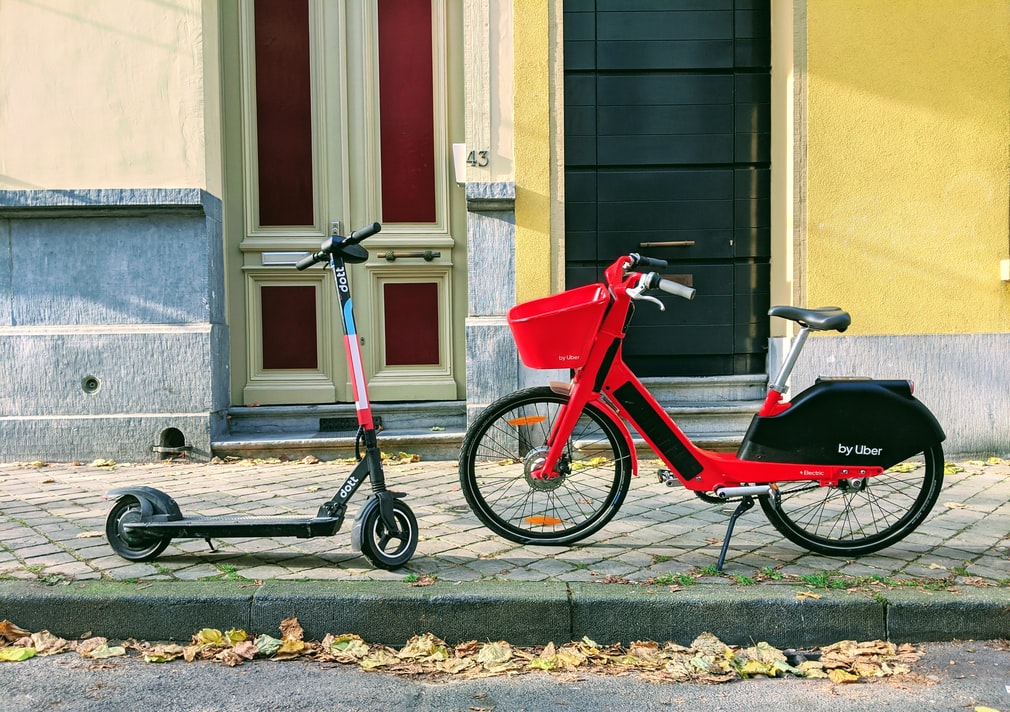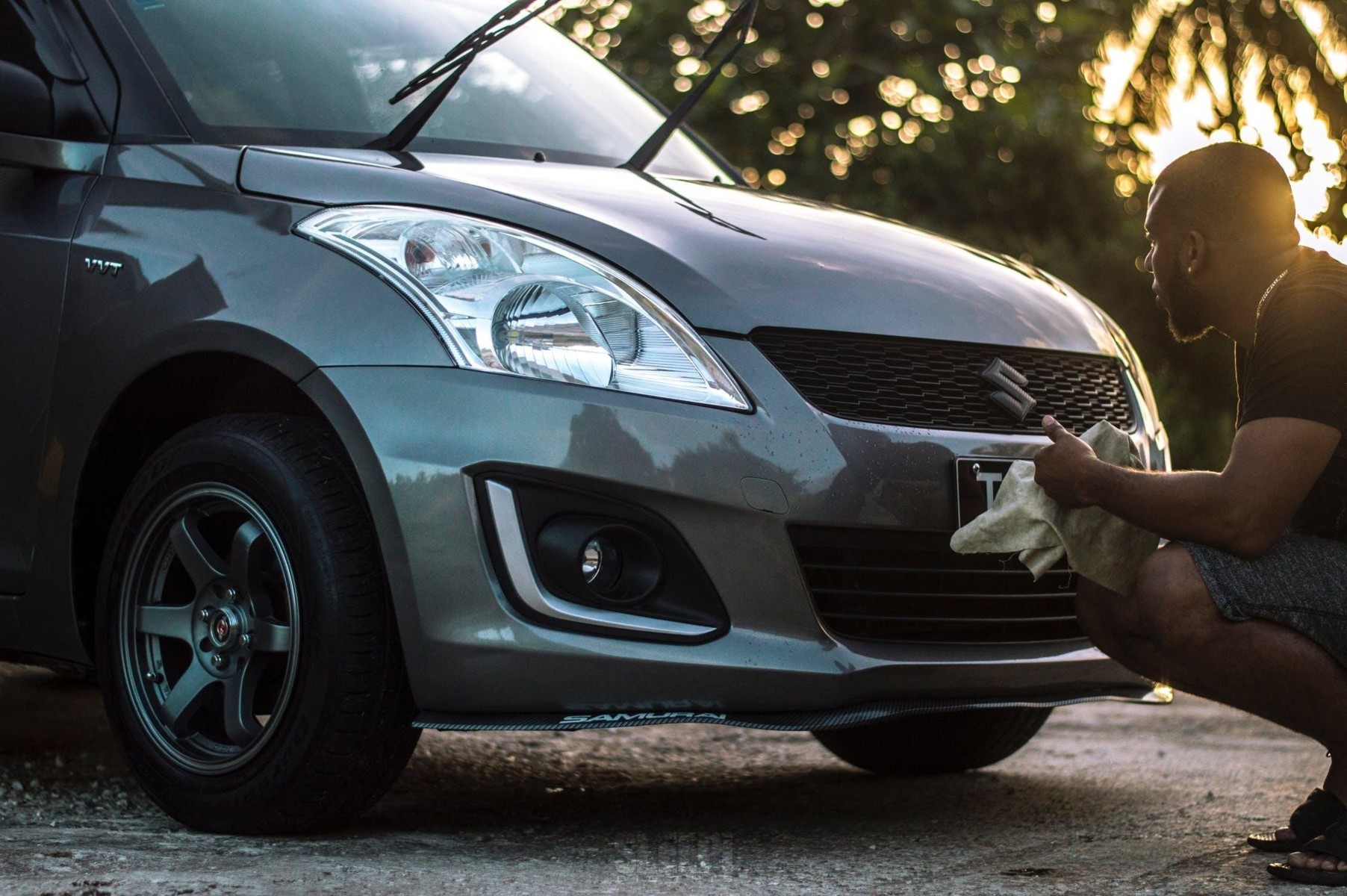Do I Need Insurance For Micro-mobility?
What is micro-mobility? Most drivers have never even heard of this term, but in recent years we’ve seen an immediate rise in these small, lightweight vehicles. Yes, I’m talking about those electric scooters, skateboards, and e-bikes that have set up shop in various cities throughout the U.S.
Some dedicated riders have even invested in their own micro-mobile device for personal use. In fact, they are a great alternative to your new or used car — effectively reducing CO2 emissions and becoming one of the quickest and easiest ways to get around town.
While their utility is undeniable, their safety remains a risk. When a rider becomes injured in a micro-mobility accident, traditional insurance policies may not cover all the damages. This could leave many riders facing the financial burden of supplementary costs after an accident occurs.
In this post, we’ll explain the top risks associated with micro-mobility and why the need for insurance will continue to rise as their popularity increases.
Top safety risks for micro-mobile vehicles
E-scooters, electric bikes, and other small vehicles are some of the most fun and economical modes of transportation. While micro-mobility remains convenient, there are known liabilities associated with its use. Here are the most common risks resulting in injury:
- Rider inexperience: First time riders are often unfamiliar with how to operate or abide by traffic laws.
- Road hazards: Encountering potholes, debris, and uneven surfaces on the road.
- Pedestrians: In major cities where micro-mobility is common, there is often frequent pedestrian traffic. Riders must stay alert to avoid a collision.
- Reduced visibility: Due to their compact nature, these micro-mobile vehicles are easily hidden, therefore, drivers are less likely to notice an e-scooter or skateboard approaching.
- Reckless behavior: Micro-mobility regulations vary from city to city, but the rider is ultimately in charge of following traffic laws and abiding by safety standards.
- Defective micro-mobile: Similar to a car, any e-scooter or e-bike is at risk of malfunction or defect, potentially threatening the life of the rider and others close by.
The misuse of micro-mobility devices is typically the leading cause of injury. No rider is exempt from the prospect of a micro-mobile accident if recklessness occurs. Just last month, Rihanna fans expressed deep concern for the singer after she experienced several injuries sustained from an e-scooter accident.
Rihanna is recovering after bruising her face in an electric scooter accident https://t.co/VfNgXTHdal pic.twitter.com/WvXGvj4pHl
— Page Six (@PageSix) September 7, 2020
This nation-wide concern should be a wake-up call for most micro-mobility enthusiasts. Countless victims, whether celebrities or not, face the injuries of an e-scooter accident without making the news. This leads us to the bigger question at hand: do micro-mobility riders require extra insurance coverage?
Basic health insurance might cover a rider’s medical costs. Still, what happens if that same rider injures a pedestrian on the sidewalk or causes costly property damage? That’s where the need for greater coverage comes into play.
Current setbacks for micro-mobility insurance
Electric scooter companies, such as Lime and Bird, have pathed the way for ride-share capabilities. It’s easy to see that city-goers have fallen for the allure of micro-mobility; their popularity continues to rise with investors perennially taking interest in electric start-ups. While their accessibility is great, their insurance policies lack protection, placing the blame of an accident directly on the rider.
The lack of protection does not stop there. It is a common misconception that auto insurance will cover any damages associated with a micro-mobility accident. The majority of insurance policies do not offer coverage for micro-mobility, making the need for micro-mobility insurance a reoccurring issue.
If you regularly ride a scooter or other type of micro-mobility device, your best option to bridge the gap in coverage is to find an available umbrella policy. This added umbrella liability insurance can go on top of your existing auto plan. However, it will likely differentiate between providers. Until micro-mobility coverage becomes a standard add-on, riders will need to compare available options that take the dangers of micro-mobility into account.
Future outlook for micro-mobility insurance
Companies are just getting started with micro-mobility. A natural shift in consumer awareness has led to more environmentally conscious buyers hoping to reduce their carbon footprint and find alternative modes of transportation. Finally you can get to your next location without getting in a traffic jam or struggling to find parking.
Widespread use of these small vehicles will eventually require a greater call to action from insurance providers to offer micro-mobility insurance. Without adequate coverage, riders could be responsible for thousands of dollars in damage. Until we start seeing specific coverage for micro-mobile devices, it is best for riders to stay safe on the road. Don’t be afraid to give that helmet a try.
Do you think companies should offer micro-mobility insurance? Tell us your opinion below.















I never thought to question whether my insurance would cover an accident on one of those electric scooters. But I wonder when does something become a micro mobile device. Are those moped looking scooters considered an automobile covered under insurance?
interesting article!
If these transportation devices occupy the same travel and parking areas as other vehicles that are required to have insurance, then the answer is simple. Everyone should be required to have coverage to prevent issues arising from uninsured operators. The likelihood of accidents with these devices is high, because operators usually lack experience and/or traffic knowledge obtained through license requirements.